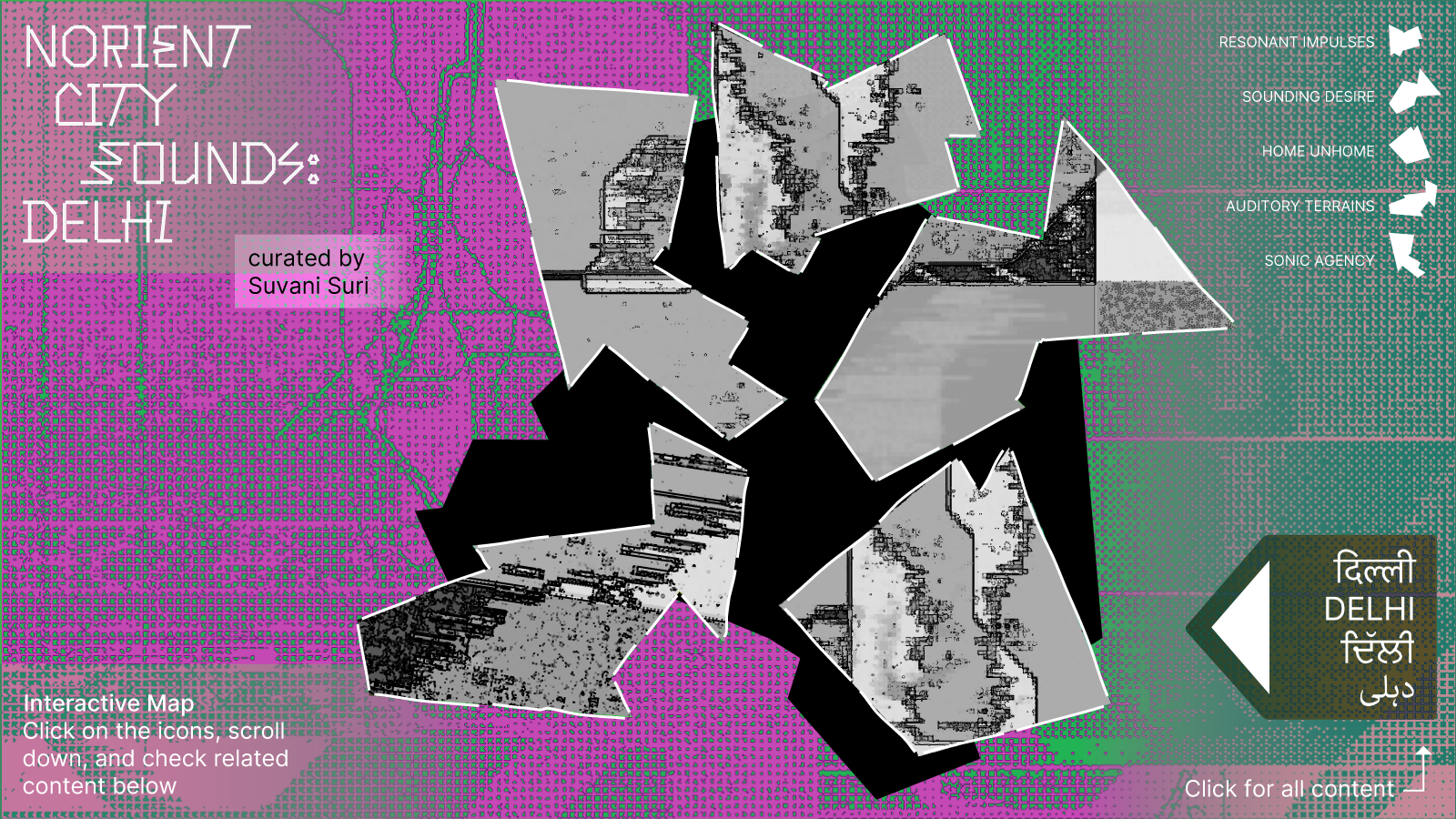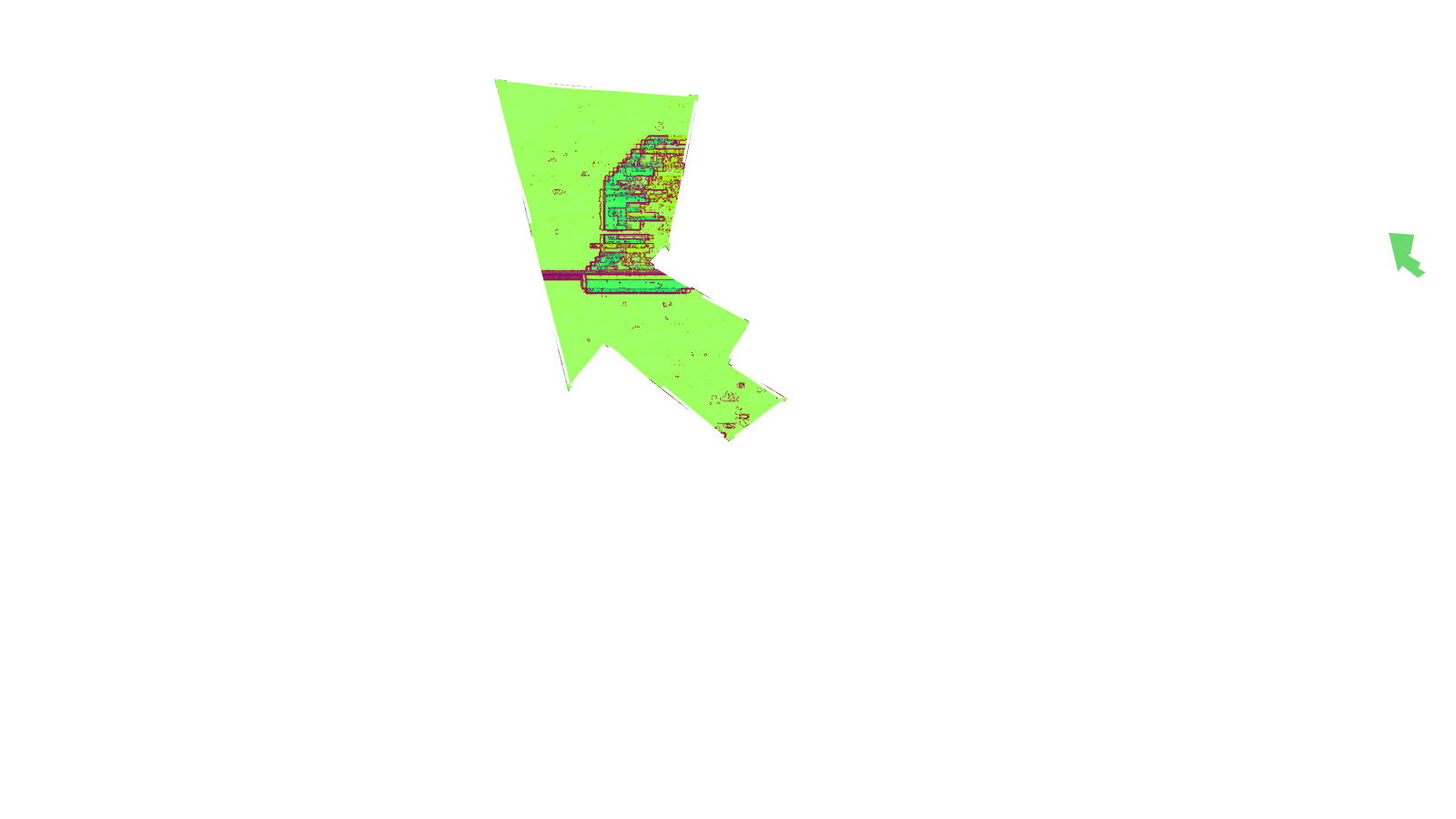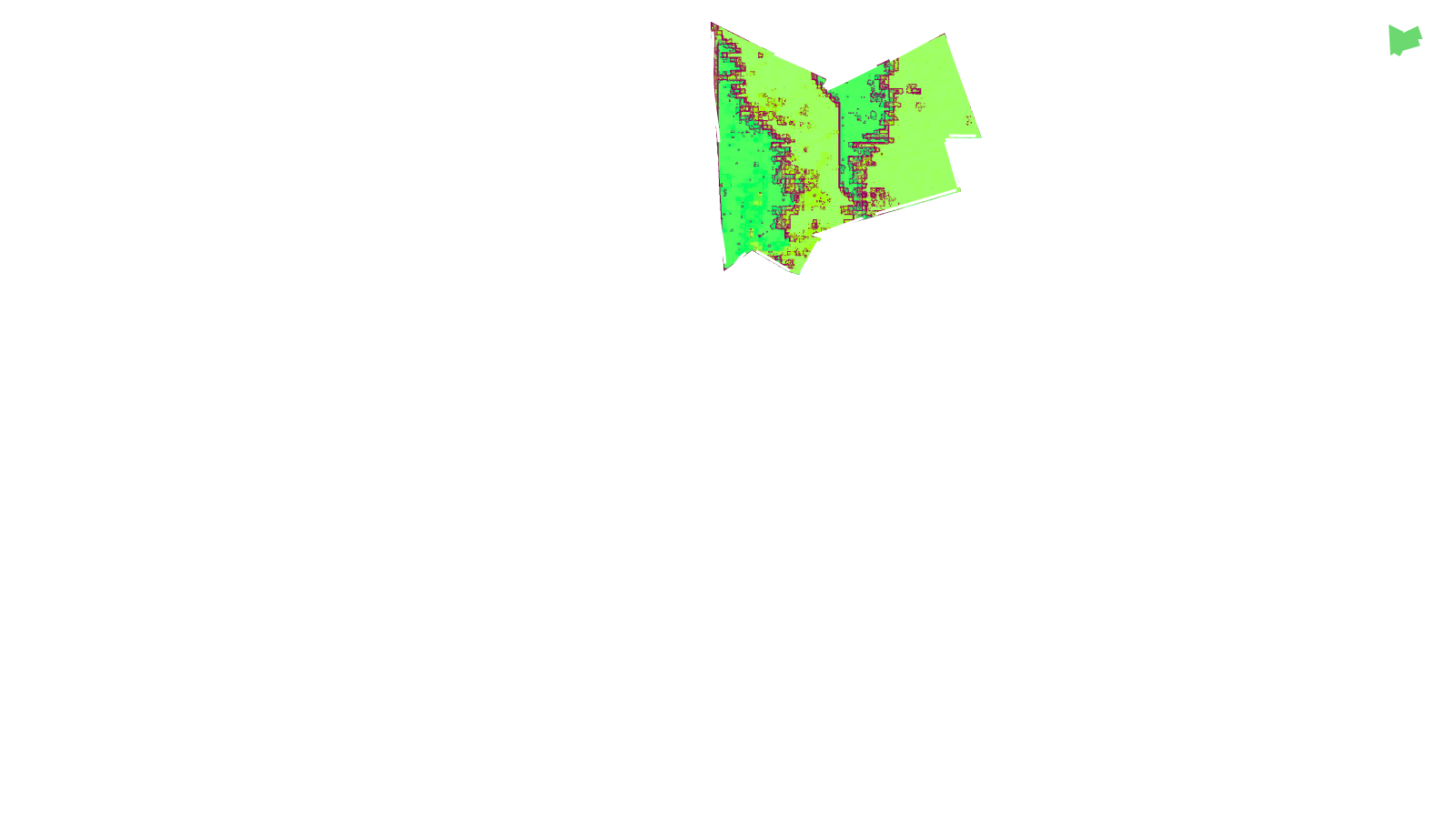Norient City Sounds: Delhi (Map)







The third edition of the Norient City Sounds series is moored in Delhi, India, as it tunes in to a polyphony of voices, songs, sounds, and narratives that reimagine and unconceal the various worlds and characters constituting the capital’s sonicities. NCS Delhi unpacks and complicates the notion of the city by scattering it into its many cities with their colliding histories, rhythms, tales, and desires. Through a collection of sound pieces, texts, films, photo-essays, conversations, graphic artworks, and more, #DelhiSensate evokes the deeply layered and composite sensorium of a city that both senses and is sensed in a multitude of ways. Curated by Suvani Suri, a Delhi-based artist and researcher.
Contents: Interactive Map
Click on the icons and scroll down to explore the content of this Special below the map.








«From the micro-localities to an entire city, the sonic circuitry spreads open in chaotic magnitude.»
«We were experimenting with various sounds to explore the possibility of a new home.»
«Qawwali carries within itself the memory of another city.»
«Decolonizing musical practice involves becoming no longer sure what listening is.»
«Despite noise pollution, the birds have found a way to continue singing.»
«Listening draws one in while drawing out the underheard.»
«The train whistles held a precarious hope.»